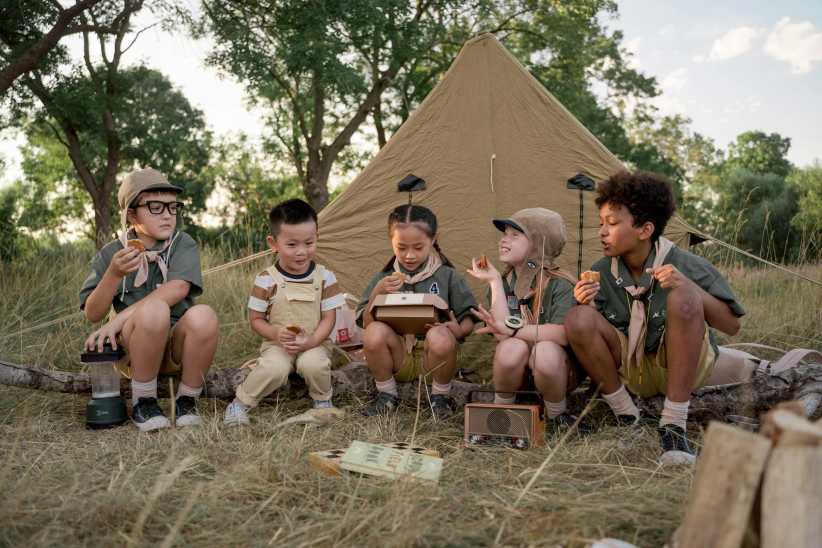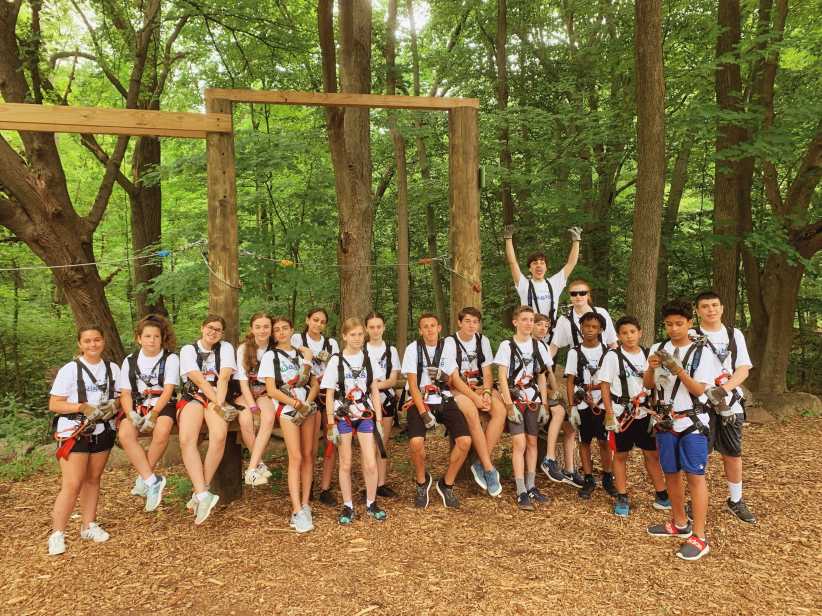Experiencing the outdoors enhances children’s ability learn, lead and enjoy nature, as well as gain a lifelong interest in caring for the planet. But parents who want to be sure their kids know a toad from a frog and a catfish from a crawfish don’t need to go it alone. Camp programs are among the best ways for children to get to know Mother Nature first-hand.
A Toad Or A Frog?
Take James, for example. James and the natural world had only a passing acquaintance, so his parents sent him to a camp in the woods. “We have a little potato patch down by the river, and the kids can catch a trout in the river and dig up potatoes and bring them back to camp, learning what it’s like to live off the land,” explains Sandy Schenk, owner and director of Green River Preserve camp in Cedar Mountain, North Carolina. “When James’s parents came to pick him up at week’s end, he dragged his duffle bag across the parking lot, gave his mom and dad a big hug, and fished out his prize from camp—a huge potato—and gave it to his father. He was so proud. He had made a connection between the earth and food, and you could just see the light bulbs turn on.”
Almost all camps incorporate hikes and nature activities, and some go the extra mile to immerse kids in nature and the environment. Green River Preserve is one such camp. It specializes in helping children better understand the earth through daily activities with professional naturalists on a 3,400-acre nature preserve.
“We find that getting kids into the natural world is transformational,” says Schenk. “Nature’s a magnificent teacher because everyone is treated the same. When you see kids helping each other over a slippery rock wall, it’s amazing. We see each child come out of the program with a greater understanding of nature and a better sense of self.”
Eagles’ Nest Camp in Pisgah Forest, North Carolina, has been teaching kids to take care of the natural world for decades. “In our Explorer’s Club class, kids are out in the woods, streams and bushes, really getting a feel for the amazing biodiversity of the Northern Appalachians,” explains Noni Waite-Kucera, executive director of Eagle’s Nest Foundation. “To have kids be able to explore and be a part of that is a real gift for them.”
Eagle’s Nest also sponsors camp craft classes, helping children learn to read a map, build a fire and “leave no trace.” “We teach every camper how to respect and avoid making an impact on the environment,” she says. Even an earth art class uses items found in the forest for woodland sculptures, which campers then leave behind to biodegrade and contribute to the health of the forest ecosystem.
You Are What You Eat
Environmental programs don’t always take place exclusively in the outdoors. Enter the kitchen! The Kitchen program at Eagle’s Nest Camp uses holistic ingredients, fresh foods, whole grains and local produce. “We grind our flour from wheat berries, and the kids make bread,” Waite-Kucera says. “It’s a way to show how nature provides for us, and why we need to return the favor.”
Sometimes, a camp’s location can provide built-in environmental lessons. At Windsor Mountain (formerly Interlocken), camp life centers around a small farm and camp garden nestled in the foothills of New Hampshire on the edge of a 4,000-acre nature preserve. “We offer kids a chance to get their feet wet in the morning dew, to feel the grass under their feet, to lie down in the field and look up at the stars,” says Sarah Herman, director of the camp. “Our activities help them understand how Mother Nature is delicate and why we care about helping to protect her.” Campers harvest vegetables from the garden for the salad bar and help take care of the farm animals.
Art and Nature
Campers at Windsor Mountain can also go directly into the marsh to learn about its animal habitats, into the woods to create natural art, or on a bog-wading ecological adventure. For older youth, three-day, off-campus trips can take campers backpacking, mountain climbing, rafting and more, all with an eye toward building awareness about their natural surroundings.
Campers leave with an enhanced appreciation of the outdoors, and some even take environmental skills into their own communities. “One of our campers who enjoyed our garden wrote to tell us that he’s volunteering his time to a community garden project,” Herman says.
Camping Specialist Gary Forster of YMCA USA says camps are an ideal setting for creating environmental awareness in our children. “Children seeing animals in a natural setting for more than just a day and understanding how their choices have an impact on all systems of life is just the beginning,” he says. “From awareness grows an appreciation, and from that standpoint, we see children who are ready to act.”
For more information about finding the right camp and how to prepare for camp, visit the ACA’s website for families, campparents.org, or call their toll-free number, 1-800-428-CAMP.
Reprinted by permission of the American Camp Association; 2006 article originally printed in CAMP magazine, American Camping Association, Inc.















